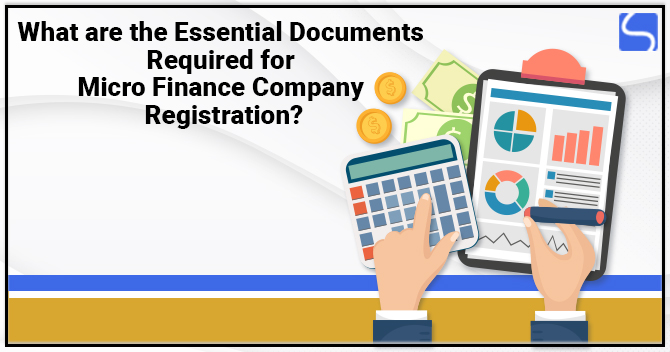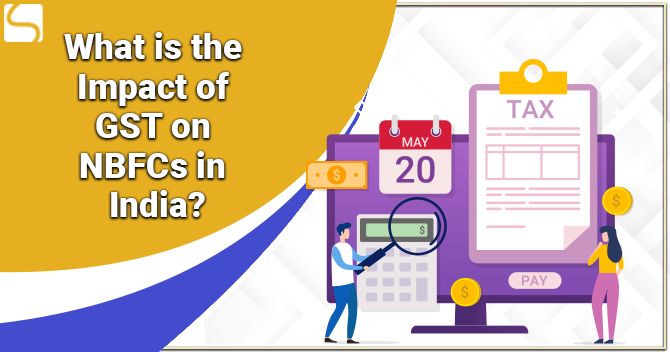Prerequisites of NBFC Registration in India – An Overview

Karan Singh | Updated: Mar 11, 2021 | Category: NBFC, RBI Advisory
Non-Banking Financial Companies or NBFCs are one of the primary contributors to the GDP (Gross Domestic Product) from the financial sector. Now the process of NBFC Registration is easy and very simplistic to perform. Non-Banking Financial Companies are legal, financial companies under RBI regulations, which provide advances, loans or credit facilities to the customers. Even though all the Non-Banking Financial Companies (NBFCs) are governed by the Reserve Bank of India (RBI), they are separate entities from regular banks. The process of NBFC Registration is not very complicated and can be registered with MCA (Ministry of Corporate Affairs) prior to approval from RBI (Reserve Bank of India). Scroll down to check the list of all prerequisites of NBFC Registration in India.
Table of Contents
What is the list of Prerequisites of NBFC Registration?
There are some requirements and prerequisites of NBFC Registration in India that should be fulfilled to register with the Ministry of Corporate Affairs. Below you can check the list of prerequisites of NBFC Registration in India:
- The institution should be registered under the Companies Act 2013 and must follow all the ROC (Registrar of Companies) Compliances.
- The company’s Net Owned Funds (NOF) should be Rs. 2 crores or more.
- At least one director of the company should have experience in an NBFC or banking sector.
- CIBIL score of all the directors should be above 800.
- The company should have a detailed understanding of RBI Regulations, Disclosures, NBFC Business, NBFC Compliances, and Taxation, for example, Obligation under PML Rule.
All the above-mentioned prerequisites of NBFC Registration procedure are enough.To get an NBFC License, an application has to be filed online and offline. In addition to the prerequisites of NBFC Registration from the Reserve Bank of India requires a complete list of documents.
Vital Documents Required for NBFC License
Following is the list of all the vital documents required for obtaining NBFC License:
- In case of a company, submit the certified copies of COI (Certificate of Incorporation) and Certificate of Commencement of business.
- Submit the certified copies of Memorandum of Association (MOA) of the company;
- Submit the certified copies of the Articles of Association (AOA) of the company.
- Submit a copy of PAN Card and CIN (Corporate Identification Number) allotted to the company.
- Submit CIBIL report of the company’s director.
- Profiles of the director duly signed by each director of the company.
- CIBIL report of all the directors of the company.
- Submit the last two years of financial statements of Independent Bodies, if any, in the group where all the directors may be holding directorship with or without substantial interest.
- Submit a copy of Board Resolution indicating the formulation of “Fair Practices Code”.
- Board Resolution approving the submission of the application and its authorizing signatory and contents.
- Submit a copy of FD or Fixed Deposit receipt and bankers certificate of “No Lien” representing balances supporting NOFs (Net Owned Funds).
- Details of the Bank Accounts/Bank Balances/ full postal address of the bank, credit or loan facilities, etc. availed.
- Statutory Auditors Certificate stating that the company is not carrying on any NBFC activity.
- Details of Authorized Share Capital and the latest shareholding pattern of the company.
- Self-attested bank statements and Income Tax Returns (ITR) etc.
- Submit a copy of the documentary evidence that validates the company’s source of the start-up capital.
- Next year years of all the documents showing the company’s plans surrounding the following elements:
- Business Thrust.
- Market Segment.
- Cash Flow Statement.
- Asset or Income Pattern Statement.
- Projected Balance Sheets.
- Submit a copy of the previous three years of audited balance sheet and Profit & Loss account accompanied by auditors and directors report.
- Board Resolution declaring that the company is not carrying on any Non-Banking Financial Company activity and will not commence any activity before getting NBFC Registration from the Reserve Bank of India.
- Statutory Auditors Certificate declaring Net Owned Fund (NOF) as on date of the application.
Registration Fees of NBFC
The Registration fee of NBFC includes many expenses, and below is the classification of the fees structure for NBFC Registration:
- An applicant needs to pay a fee to the Ministry of Corporate Affairs (MCA), and this fee is based on the authorized capital of the company.
- The fee structure for NBFC Registration also includes the expenses for Articles of Association (AOA) and Memorandum of Association (MOA) of the company.
- A specific amount of fees is also payable concerning Simplified Proforma for digitally incorporating company (SPICe+).
- Every company’s director needs to provide a DSC or Digital Signature Certificate; thus, its generation subjected to payment of periodic fees.
- Extra fees must go along with the application to the registrar.
- For DIN or Director Identification Number, a fixedfee has to be paid to the Ministry of Corporate Affairs (MCA).
What are the Guidelines by RBI concerning the NBFCs Code of Conduct?
- The RBI does not support the NBFC’s Code of Conduct regarding amount repayment.
- Based on RBI guidelines, the company offer the rate of interest.
- The company must enable the submission of the balance sheet every year.
- Public Deposit of Rs. 20 crores or more.
- The Public Deposit’s limitation in the form of Liquid Assets should stay at 15%.
- Non-Banking Financial Companies cannot offer extra benefits, incentives to the customers or depositors like conventional banks.
- The half-yearly ALM return is mandatory to be submitted by the companies who hold.
- Under no circumstances, the depositors of Non-Banking Financial Companies benefit from the protection of DICGC (Deposit Insurance and Credit Guarantee Corporation).
- Only those non-Banking Financial Companies can accept conditional deposits from public depositors who have a Minimum Investment Grade Credit.
Conclusion
There is no disagreeing that Non-Banking Financial Companies are playing an essential role in the financial sector, and these financial companies are way better than the conventional banking policy and code of conduct. The company searching for NBFC Registration must know all the prerequisites of NBFC Registration. All the information provided in this blog gives a clear idea about what it takes to gain an NBFC Registration Certificate from the respective authority.
Also, Read: NBFC Registration Procedure with RBI – A Complete Guide















